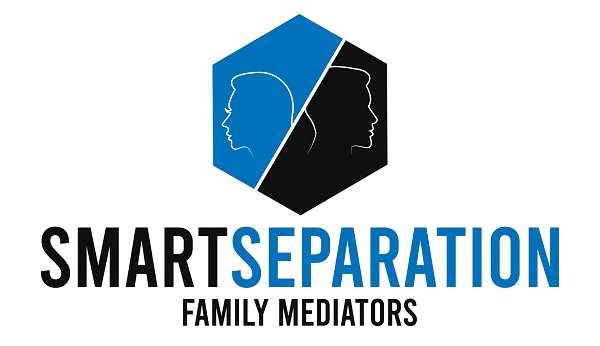Overview of Divorce Mediation and Court Proceedings in Ontario
Key Differences between Mediation and Litigation
Divorce mediation is a voluntary, collaborative process where both parties work with a neutral third-party mediator to resolve their issues outside of court. Mediation aims to help couples reach a mutually acceptable agreement through structured discussion and compromise.
By contrast, litigation is a court-driven process where each spouse typically hires a lawyer to represent their interests. A judge makes binding decisions after considering the evidence and legal arguments presented by both sides. Litigation is usually more formal, adversarial, and public, with strict procedural rules and timelines.
Role of the Mediator vs. Role of the Judge
In mediation, the mediator is a neutral facilitator. They do not take sides, offer legal advice, or impose decisions. Instead, they guide productive conversations, help identify key issues, and promote fair outcomes. Mediators may specialize in family law and often have backgrounds in social work, law, or counselling.
In court, the judge acts as a decision-maker. They listen to evidence, apply the Family Law Act or Divorce Act, and issue orders that are legally binding and enforceable. Unlike a mediator, a judge has the legal authority to compel actions and resolve disputes when parties cannot agree.
Voluntary vs. Adversarial Approaches
Mediation is voluntary—both parties must agree to participate and are free to withdraw at any time. This cooperative nature encourages openness, respect, and long-term solutions, especially beneficial for parents who must continue co-parenting post-separation.
Court proceedings are inherently adversarial, often pitting spouses against each other. This can lead to increased stress, longer timelines, and higher legal costs. While court may be necessary in high-conflict or complex cases, it is generally considered a last resort when alternative dispute resolution methods fail.
Cost Comparison: Mediation vs. Going to Court
Typical Fees for Mediation in Ontario
Divorce mediation in Ontario is typically billed at an hourly rate, often ranging between $150 to $350 per hour, depending on the mediator’s experience and qualifications. Some accredited family mediators offer flat-fee packages for standard services, such as parenting plans or financial discussions. For couples with modest incomes, sliding scale fees or subsidized mediation services may be available through court-connected family mediation programs.
The total cost of mediation often depends on the number of sessions needed. Many couples are able to reach a resolution in 3 to 5 sessions, making the overall cost significantly lower than pursuing court proceedings.
Legal Fees, Court Filing Costs, and Extended Timelines in Litigation
Court-based divorce proceedings involve higher upfront and ongoing costs. Each party typically hires a family lawyer, with fees ranging from $200 to $400 per hour. In complex or contested cases, legal fees can easily exceed $5,000 to $25,000 per spouse.
In addition to legal representation, there are mandatory court filing fees—for example, a simple divorce application in Ontario costs $669 ($224 when filing and $445 when requesting the divorce order), not including service fees or additional motions.
Litigation also comes with extended timelines due to backlogs in the Ontario family court system. Delays can result in multiple court appearances, prolonged stress, and higher cumulative legal expenses.
Time and Flexibility
Average Duration of Mediation vs. Court Cases
Mediation typically resolves issues in a few weeks to a few months, depending on the number and complexity of matters involved. Many couples reach a full agreement in 3 to 5 sessions, each lasting 1 to 2 hours, scheduled at their convenience.
In contrast, court cases often take several months to over a year—or even longer if the matter is contested. Complex issues, multiple motions, or uncooperative parties can significantly extend the timeline. A trial is usually the last step in a drawn-out process, and many cases settle only after numerous delays.
Flexible Scheduling and Virtual Options for Mediation
One of the major advantages of mediation is flexibility. Sessions can be scheduled around work, school, and parenting commitments, including evenings or weekends if needed. Since the COVID-19 pandemic, virtual mediation has become widely available in Ontario, allowing parties to participate remotely from the comfort of their homes.
Court Backlog and Mandatory Timelines in Ontario’s Family Courts
Ontario’s family court system faces chronic backlogs, which can delay even straightforward matters. Once a court application is filed, parties must follow mandatory procedural steps—such as filing deadlines, case conferences, and settlement meetings—before they can even approach a trial date.
Privacy and Confidentiality
Confidential Nature of Divorce Mediation
One of the core principles of divorce mediation is confidentiality. Everything discussed during mediation sessions is private and cannot be used as evidence in court if mediation breaks down. Mediators are bound by professional codes of conduct and legal obligations to keep discussions confidential, except in rare cases such as child protection concerns or threats of harm.
Public Court Records and Open Hearings
By contrast, court proceedings are a matter of public record in Ontario. Documents filed with the court—such as financial disclosures, affidavits, and hearing transcripts—are generally accessible to the public. Unless a judge orders a publication ban or closed hearing (which is rare), family law hearings are open to the public, including members of the media.
Why Some Couples Prefer Privacy for Family Matters
Divorce mediation offers a discreet alternative to airing grievances in a courtroom. Couples who wish to shield their children, maintain dignity, or protect business and financial reputations often choose mediation to keep their separation out of the public eye.
When Mediation Works Best—and When It Doesn’t
Ideal Scenarios for Mediation
Mediation is most effective when both parties:
- Share mutual respect and are willing to listen to each other
- Are committed to finding common ground rather than “winning”
- Have equal access to information, such as financial disclosures
- Wish to preserve a functional co-parenting relationship
- Prefer to keep matters private, efficient, and cost-effective
It’s especially helpful when couples agree on the broad terms of their separation and just need help working out the details. Mediation also works well when children are involved and both parents want to minimize conflict for the sake of their family’s emotional well-being.
Situations Where Court May Be Necessary
There are circumstances where mediation may not be safe or effective. These include:
- History of domestic violence, abuse, or intimidation
- Severe power imbalances that compromise one party’s ability to speak freely
- Refusal to provide full financial disclosure
- Urgent legal matters, such as restraining orders or child protection concerns
- One party is completely unwilling to negotiate or participate in good faith
In these cases, the court system can offer immediate protections, enforce disclosure, and impose binding decisions where cooperation is not possible.
Hybrid Approaches
Many families in Ontario benefit from a hybrid approach. This may involve:
- Starting with mediation to resolve as many issues as possible
- Using lawyers to review any agreements and provide independent legal advice
- Turning to court only if mediation fails or if certain issues remain unresolved
Some couples even return to mediation later to update parenting plans or financial arrangements as their circumstances change—without reopening a full court case.
As an experienced family and divorce mediator in Toronto, I often write blogs to provide insights, tips, and resources on family mediation and divorce in Ontario. Follow my blog to stay informed and empowered during challenging times.



